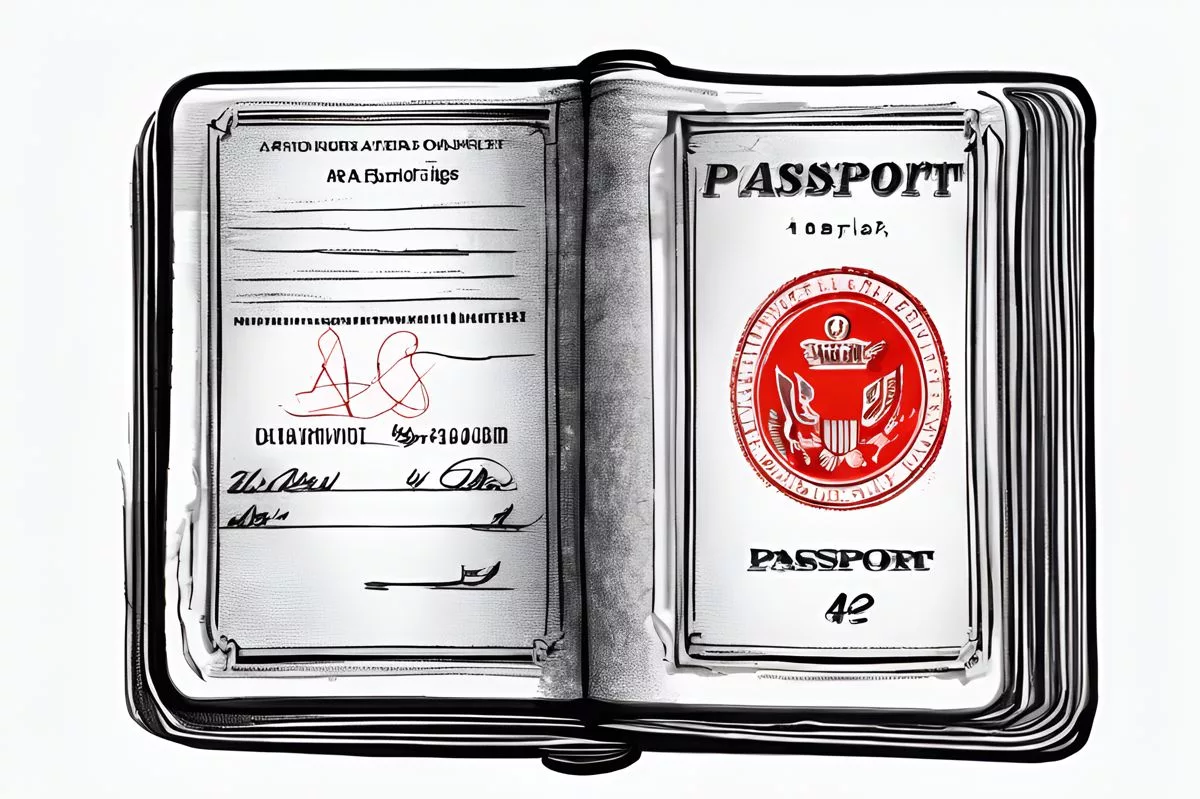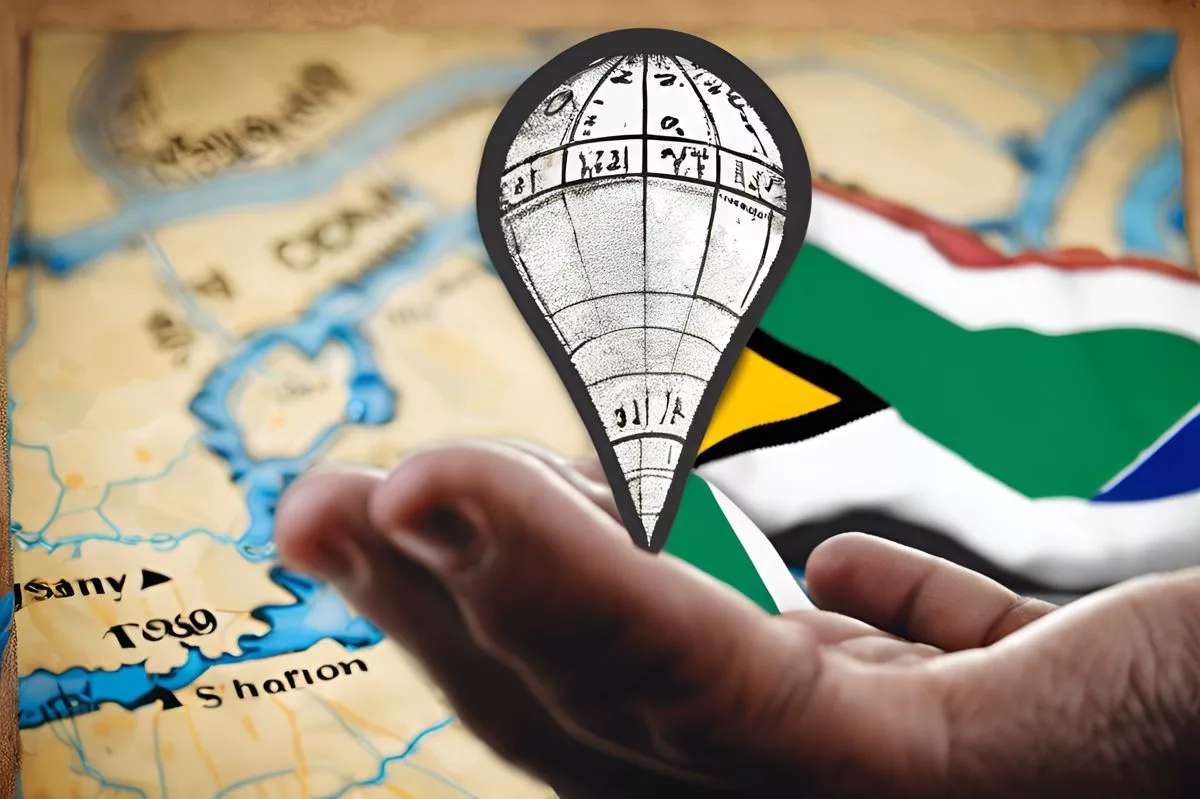South Africa is facing a rise in the trade of identity documents due to corruption within the Department of Home Affairs. Syndicate bosses and corrupt officials manage the illegal documents, leading to an alarming total of 109 corruption cases that have been referred for investigation. The department has taken an assertive stance to tackle the issue, with the Counter Corruption and Security Services branch employing analysts who perform large-scale data analytics to identify inconsistencies. Despite the unsettling unveiling of these issues, the government’s proactive measures provide hope that the waves of corruption can be curbed.
What is the identity document trade and corruption scandal in South Africa?
South Africa is facing an alarming rise in the trade of identity documents, driven by corruption within the Department of Home Affairs. Syndicate bosses and corrupt officials manage the illegal documents at multiple centers nationwide. The department has taken an assertive stance to tackle the issue, with the Counter Corruption and Security Services branch employing analysts who perform large-scale data analytics to identify inconsistencies. Despite the unsettling unveiling of these issues, the government’s proactive measures provide a ray of hope.
Rampant Corruption and Illicit Trade
South Africa’s societal fabric is becoming more and more transparent as the illicit trade in identity documents, driven by widespread corruption within the Department of Home Affairs, thrives. As the African sun dips below the horizon, these illicit transactions take place under the veil of night. Birth certificates and passports are shockingly bought and sold for as little as R1 000 and as much as R45 000.
Home Affairs Minister, Leon Schreiber, has disclosed an alarming total of 109 corruption cases that have been referred to the Counter Corruption and Security Services branch for investigation. Syndicate bosses and corrupt officials audaciously manage the illegal documents at multiple centres nationwide.
A Troubling Unearthed Reality
This worrying trend came to light due to a parliamentary question raised by EFF MP Yazini Tetyana, which led Schreiber to unveil a comprehensive plan that has been put in place to tackle the growing risk of fraud and corruption within his department.
“Through this strategy,” Schreiber articulated, “we aim to advise, recommend, and assist the department in incorporating measures to enhance the application of systems, policies, procedures, and regulations. Our goal is to suppress fraudulent activities.”
The department has taken an assertive stance in response to this issue, as opposed to being complacent. To identify inconsistencies, the Counter Corruption and Security Services branch has employed analysts who are tasked with performing large-scale data analytics. The findings are then relayed to the business to strengthen any weak points in the procedures.
Red Flags and Alarming Cases
An unsettling 109 cases of fraud and corruption have been logged since the commencement of the current fiscal year. Among these are multiple instances where officials sold birth certificates to Zimbabweans for a scanty R1 000, leading to numerous prison sentences. One official who processed 192 fraudulent passports in 2021 bagged a 12-year sentence at the Durban Commercial Crimes Court.
A case worth noting involved a Pakistani national who was arrested and sentenced to eight years in prison for his role in a passport syndicate and for bribing officials with R45 000. A former Home Affairs official who was involved in procuring these fraudulent passports was earlier given a 10-year sentence in October 2023.
Schreiber also made public that an anonymous informant led to further action regarding foreign nationals obtaining South African passports through the ‘photo swap’ process. This procedure entails a South African citizen accompanying a foreign national to the home affairs department to apply for a passport, during which the official takes a photograph of the foreigner.
Syndicate Crackdown and Continued Government Efforts
In a chilling revelation, Schreiber exposed that the alleged syndicate kingpin, Afran Ahmed, was captured alongside 26 others during a raid at the Krugersdorp Home Affairs Centre in Gauteng. Ahmed, a Pakistani national, is believed to have charged foreign nationals R45 000 for each South African passport.
To further investigate and tackle this unlawful trade, data from IT passport applications was obtained and examined thoroughly. Numerous South African citizens, officials, and foreign nationals were implicated in the fraudulent processing of passports at different home affairs offices during both day and night.
The escalating complexity of these plots, along with the syndicates’ extensive influence, casts a stark spotlight on the deeply rooted corruption within the country’s administrative system. By taking advantage of oversight gaps, syndicates and corrupt officials are compromising national security and shaking the bedrock of the nation’s identity.
Despite the unsettling unveiling of these issues, the government’s proactive measures provide a ray of hope. With continued vigilance and the execution of rigorous measures, there is a flicker of optimism that the waves of corruption can be curbed, restoring trust in the system, one case at a time.
What is the Counter Corruption and Security Services branch?
The Counter Corruption and Security Services branch is a unit within the South African Department of Home Affairs that is responsible for investigating cases of corruption and fraud within the department. The unit employs analysts who perform large-scale data analytics to identify inconsistencies and strengthen weak points in procedures.
What is the cause of the rise in the trade of identity documents in South Africa?
The rise in the trade of identity documents in South Africa is largely due to corruption within the Department of Home Affairs. Syndicate bosses and corrupt officials manage the illegal documents at multiple centers nationwide, leading to an alarming total of 109 corruption cases that have been referred for investigation.
What measures has the South African government taken to address the issue of identity document trade and corruption?
The South African government has taken an assertive stance to tackle the issue of identity document trade and corruption within the Department of Home Affairs. The Counter Corruption and Security Services branch employs analysts who perform large-scale data analytics to identify inconsistencies and strengthen weak points in procedures. The government is also cracking down on syndicates and corrupt officials, arresting and sentencing those involved in fraudulent activities.
What are some of the red flags and alarming cases in South Africa’s identity document trade and corruption scandals?
Among the 109 corruption cases that have been referred for investigation are instances where officials sold birth certificates to Zimbabweans for a scanty R1 000, leading to numerous prison sentences. One official who processed 192 fraudulent passports in 2021 bagged a 12-year sentence at the Durban Commercial Crimes Court. The alleged syndicate kingpin, Afran Ahmed, was captured alongside 26 others during a raid at the Krugersdorp Home Affairs Centre in Gauteng.
What impact does the identity document trade and corruption have on South Africa’s administrative system?
The identity document trade and corruption within the Department of Home Affairs compromise national security and shake the bedrock of the nation’s identity. By taking advantage of oversight gaps, syndicates and corrupt officials are compromising the integrity of the system and eroding trust in the government.
Is there hope for curbing corruption and restoring trust in the system?
Despite the unsettling unveiling of these issues, the government’s proactive measures provide a ray of hope. With continued vigilance and the execution of rigorous measures, there is a flicker of optimism that the waves of corruption can be curbed, restoring trust in the system, one case at a time.













